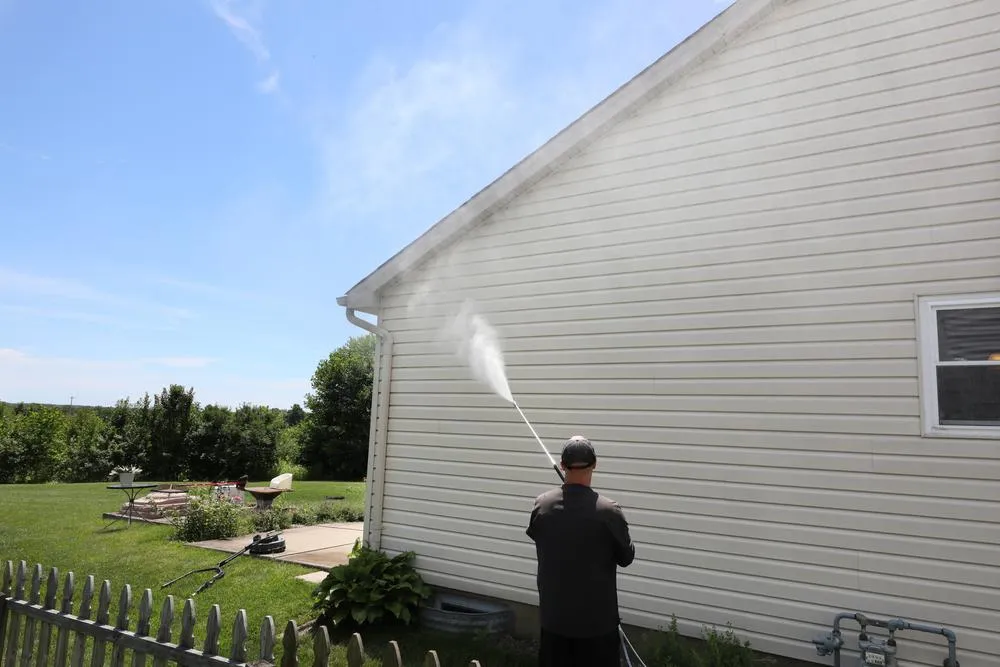
The Importance of Power Washing Before Painting in Toms River
A Must-Do Step for Lasting, Flawless Results
If you're thinking about painting your home or business in Toms River, New Jersey, there's one step you shouldn't skip: power washing. While it might seem like an optional add-on, power washing is a crucial first step to ensure a smooth, long-lasting paint job — especially in a coastal, weather-exposed town like Toms River.
In this post, we’ll explore why power washing before painting is essential, how it works, and what local homeowners need to know before booking their next painting project.
Why Power Washing Matters Before You Paint
Paint adheres best to clean, dry surfaces. Over time, buildings collect layers of:
Dirt and dust
Mold and mildew
Pollen and salt (especially near the Jersey Shore)
Loose paint, old coatings, and chalky residue
If these contaminants aren't removed before painting, the new paint can blister, peel, or fail to bond correctly — costing you more in repaints and repairs.
How Power Washing Works (And Why It’s Different Than Hosing It Down)
Power washing uses high-pressure water to thoroughly clean exterior surfaces like siding, brick, concrete, and stucco. Unlike a garden hose, professional power washing can:
Reach into crevices and textured surfaces
Remove deep-seated stains, mold, and grime
Strip away flaking or chalking paint
Prepare the surface to accept primer or paint evenly
At A Point Painting & Remodeling LLC, we use commercial-grade power washing equipment and surface-specific nozzles to clean safely without damaging your property.
When and Where to Power Wash Before Painting
Here’s a quick guide to help you understand when power washing is necessary:
We recommend power washing at least 24–48 hours before painting to ensure surfaces are completely dry.
FAQs: Power Washing Before Painting
How long after power washing can you paint?
Most surfaces should be allowed to dry for 24 to 48 hours after power washing before painting begins.
Can I paint without power washing first?
Technically yes, but it’s strongly discouraged. Paint won’t bond well to dirty or chalky surfaces, leading to premature failure.
What’s the difference between power washing and pressure washing?
The terms are often used interchangeably. Technically, power washing uses heated water, while pressure washing may not. Both are effective for prep.
Does power washing remove old paint?
Yes, if the paint is already flaking or peeling. However, scraping and sanding may still be needed for stubborn spots.
Is power washing safe for stucco or wood?
Yes — but it requires low pressure and experienced handling. At A Point Painting, we adjust our techniques per surface type.
Why It Matters in Toms River
Toms River’s coastal climate means your home is exposed to:
Salt air from the nearby Atlantic coast
Frequent storms and humidity
Mold and algae buildup in shaded or damp areas
These conditions make power washing an essential part of any exterior painting job in the region. It helps prevent mold from growing under your new paint and extends the life of your investment.
Final Thoughts
Power washing is more than just cleaning — it's a critical preparation step for a high-quality, long-lasting paint finish. If you're planning an interior or exterior painting project in Toms River, let A Point Painting & Remodeling LLC handle the job from prep to final coat.
👉 Call us at (732) 286-9886 or fill out our contact form for a free estimate today.